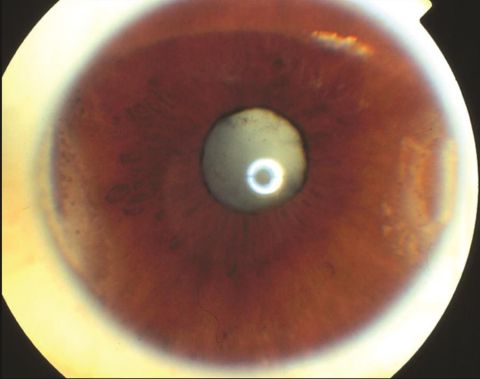Children under the age of 16 are more vulnerable to the inflammatory joint disease known as juvenile idiopathic arthritis (JIA).
JIA is an autoimmune disease. In JIA, white blood cells assault the body’s healthy joints (the cells that normally fight disease). The joints get inflamed as a result. It can make walking difficult. Other typical signs include a fever and skin rashes. JIA is a persistent, chronic disease. This means that there is no cure but there is treatment.
Some kids with JIA also develop eye irritation. It is known as uveitis. When the uvea, which is the centre layer of the eyeball and contains the iris or coloured component of the eye, gets inflamed, results uveitis.
Uveitis can take many different forms, but JIA often affects the front of the uvea (anterior uveitis).
Uveitis symptoms include redness, pain, sensitivity to light, and blurry vision.
Up to 50% of patients initially have no noticeable symptoms. once symptoms appear, damage to the eye and vision loss may have already happened This is why every child who has been diagnosed with JIA should visit an ophthalmologist very away.
Early detection and treatment of uveitis in children can prevent and Your child needs to consult an ophthalmologist as soon as possible if they have been identified as having juvenile idiopathic arthritis (JIA).
The following will happen throughout the exam:
Blood will be tested for antinuclear antibody (ANA). The youngster is more likely to develop uveitis if the test results are positive. Additional blood tests might also be performed.
A device known as a slit lamp will be used by your ophthalmologist to examine your child’s eye. The doctor can see the eye clearly and in depth thanks to the slit lamp. He or she can check to see if uveitis has caused any eye damage.
Based on the results, your ophthalmologist will tell you how often your child needs to come back for an exam.
Numerous eye issues might be brought on by uveitis. These issues can result in eyesight loss if neglected. The good news is that uveitis-related visual loss can be avoided. Your child’s vision may be saved by uveitis treatment and early detection.
If your child has JIA, they need to consult an ophthalmologist as soon as possible. They will search for uveitis symptoms. Your ophthalmologist will advise you when to have another exam after the initial one.
A collaborative approach is frequently used to treat uveitis. To determine the best course of action for your child, an ophthalmologist will consult with the rheumatologist (a specialist who treats autoimmune diseases like arthritis and uveitis).
Corticosteroids (steroids) and immunosuppressive medications are two possible treatments.
The most popular form of treatment for uveitis is steroids. They can be administered intravenously, orally (as pills), or as eyedrops. Steroids alleviate ocular irritation in 7 out of 10 patients. Other patients could require immunosuppressive medication. These medicines lessen your body’s immune system’s response. This can aid in reducing joint and ocular inflammation.
At The Eye Center- Dr. Mahnaz Naveed Shah & Associates our team of eight ophthalmology subspecialists/ eye specialists, eye surgeons who are considered amongst the very best eye specialists in Karachi and in Pakistan, have the diagnostic and treatment capabilities to treat from the simplest to the most complex patients. We work hard to provide our patients with the best possible medical and surgical eye care, in a state of the art purpose built eye care facility. We offer the entire array of medical, laser and surgical treatments to help provide patients the best possible care in the most efficient, safe and ethical manner.
If you need an appointment, please contact us at 03041119544 during our working hours or leave us a WhatsApp message at +923028291799 and someone will connect with you. Walk-in appointments are also available for emergencies. We can also be reached through our web portal on www.surgicaleyecenter.org

